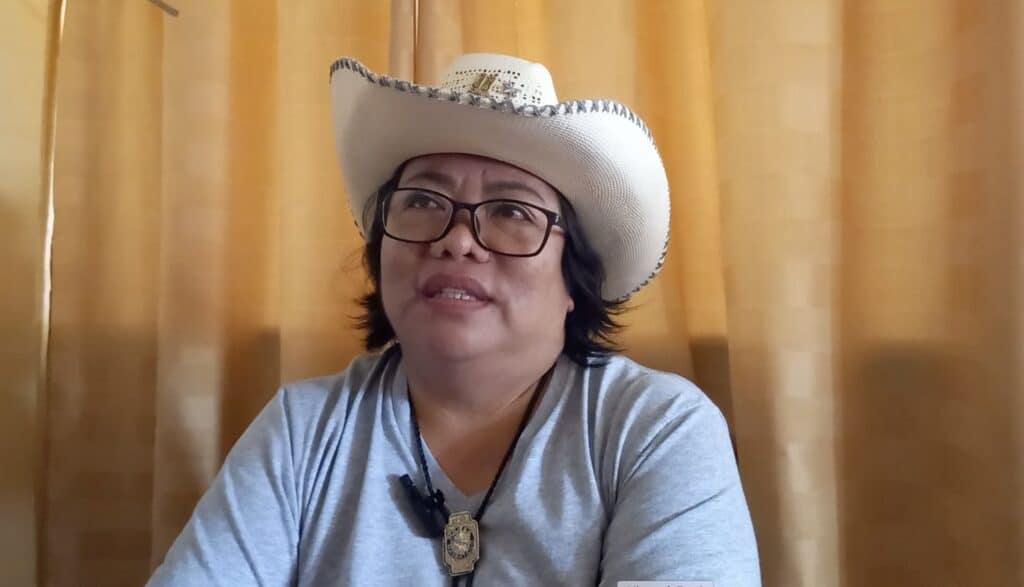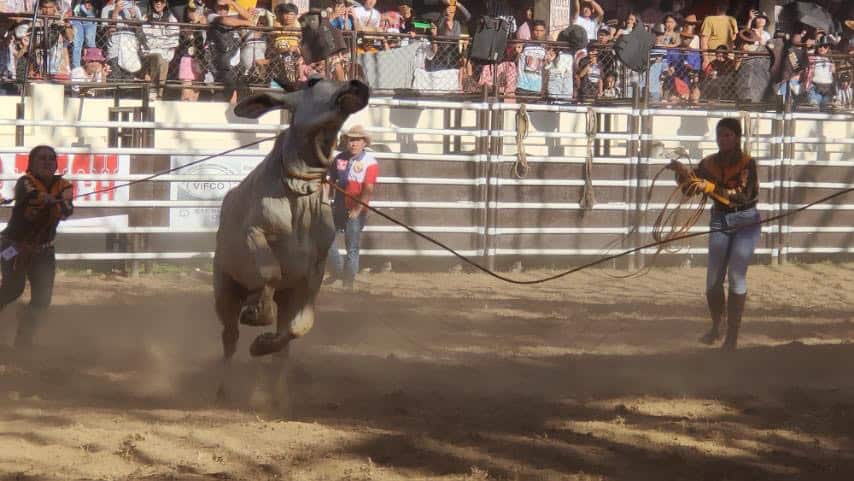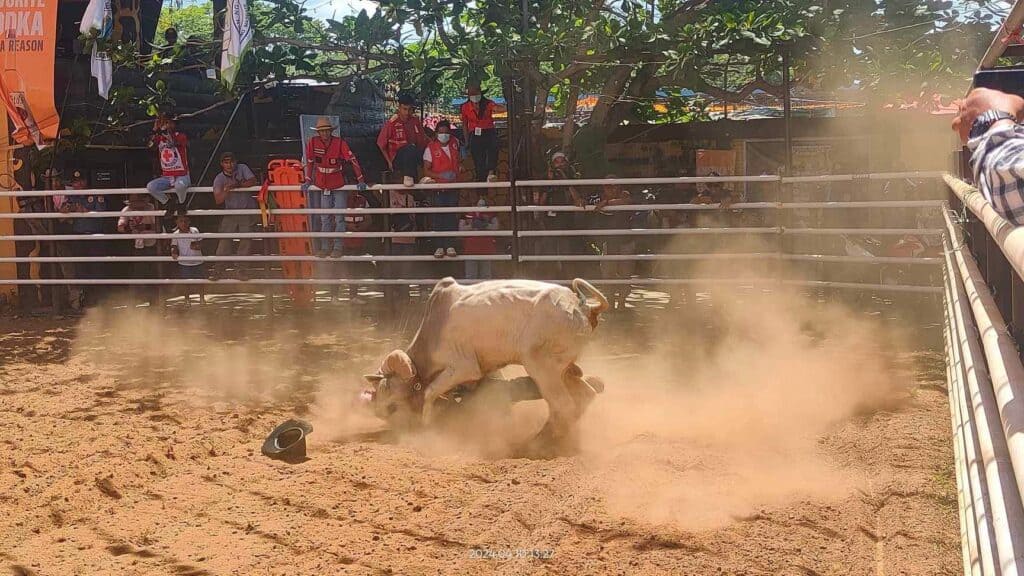In the middle of the scorching sun and dusty background, cowboys attempt to tame the wild cattle by wrangling—a common scenario in Masbate’s Rodeo Festival.
During the celebration, participants wear cowboy and cowgirl outfits while dancing to classic rodeo songs, while others simply find comfort in watching the scene upfront. Beyond the reintroduction of rich cattle industry in Masbate, what message does it tell to the people?
Rodeo Masbateño Festival began in 1993 during Emilio Espinosa Jr.’s term as governor. Originally called Rodeo Filipino, it was later renamed Rodeo Masbateño in the early 2000s. Former President Gloria Macapagal Arroyo declared Masbate the “Rodeo Capital of the Philippines” on September 2, 2002. Through organizing the festival yearly, Masbateños hope to draw visitors and showcase Masbate’s vibrant rodeo culture.
According to Leo Gozum, rodeo director, the festival is not just about fun and games; it is also about helping Masbate’s cattle industry grow. This has made raising cattle a more profitable job, especially with the present good prices of cows. Gozum added that the festival has also brought people together to work on new ideas for the cattle industry, encouraging stakeholders to participate.
“By having the rodeo, the spotlight goes to the cattle industry. People in the science community on the business side are showing them the product. In this way, we have other companies that support our business or try their products, which work or don’t work,” Gozum said.
“Our cattle here are primarily bred for breeding purposes, not for food. We breed for quality. We also sell other cattle to other ranches. In fact, if the cattle [is] a male on the ranch, it is the second priority. Females dominate the farm, a concept we refer to as the alpha female in our ranch.”
Furthermore, Gozum clarifies a common misconception about rodeos. He emphasized that rodeos are not just for elite ranchers; instead, it celebrates the skills and talents of every cowboy.
In contrast to the flashy rodeos often seen in the United States, Rodeo Masbateño highlights the basic ranch work. Cattle handling skills take center stage.
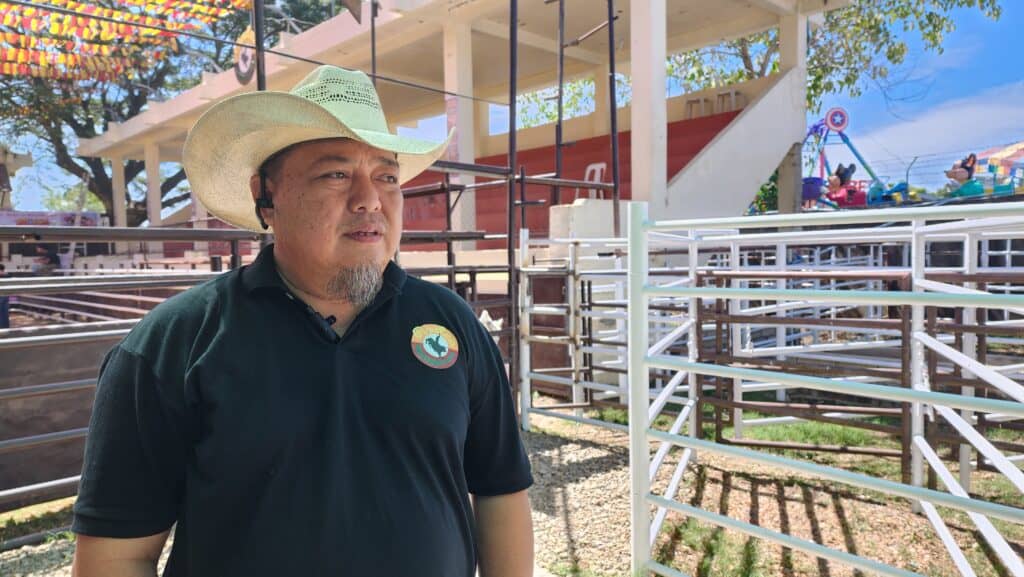
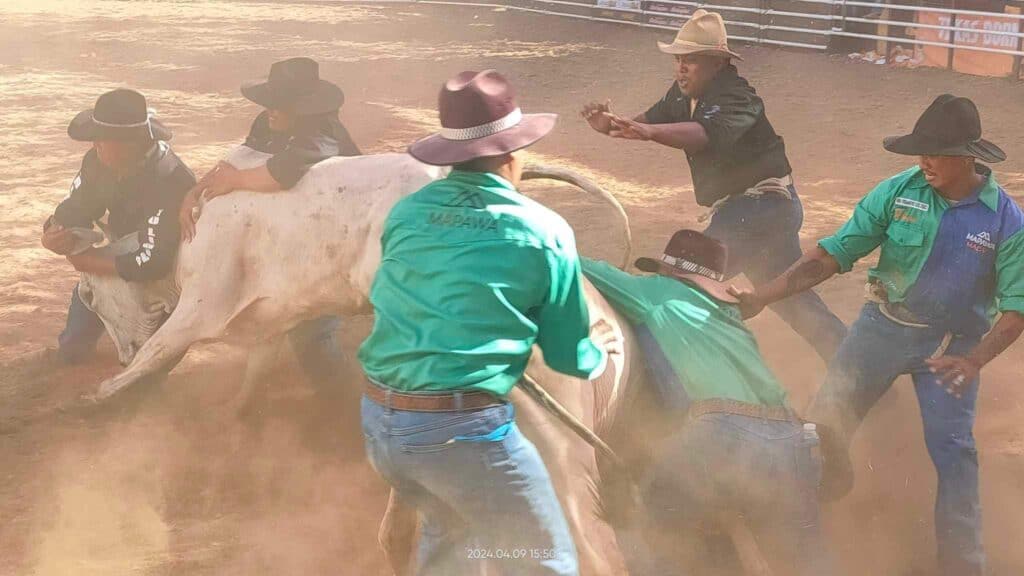
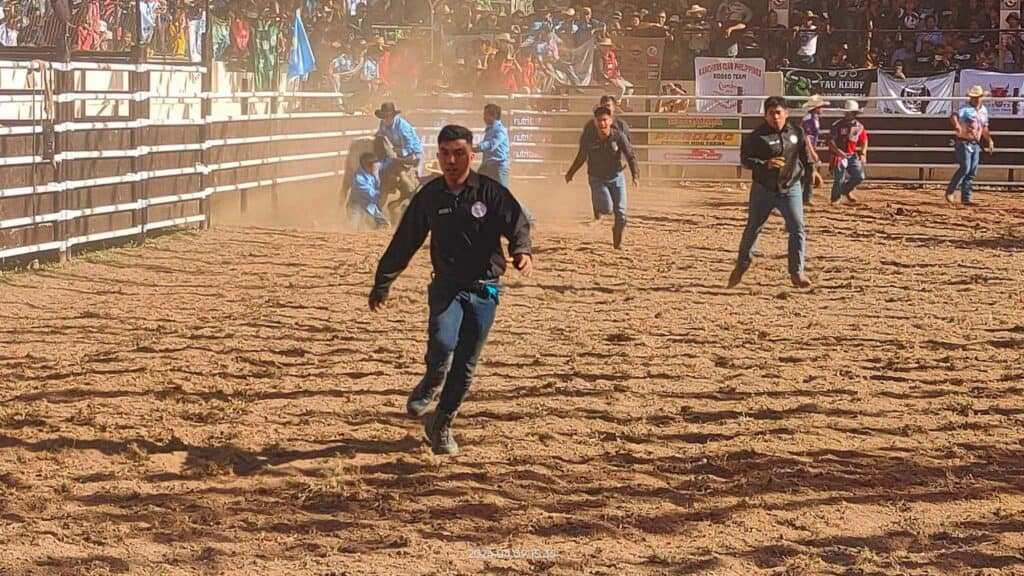
Sense of pride
The tagline for the Rodeo Masbateño Festival is “Aton ini” which simply means “this is ours.”
The ranch rodeo competitions showcase the day-to-day tasks on a ranch, showing essential skills needed for cattle management. It is not just about showmanship; it is about demonstrating the practical aspects of working with cattle.
“I am encouraging [the young individuals] to learn the basics—the basic skill of cattle hunting—just buy a rope and try to laso. My point is to try to learn the skills, and we can train you more, but we encourage everyone that it is a noble work and it can improve your discipline,” Gozum said, stressing the significance of instilling a “sense of ownership” in all participants.
He said that the event cultivates pride in Masbate’s culture and economy, bringing together individuals from across the Philippines to remember the tradition and showcase expertise in the cattle industry as it stands as a unique and unifying celebration nationwide.
“This is ours; this is our culture; this is what we do; and this is the reason why we have our team right now; this is not only for Masbateno but also for everyone. This is a festival of our culture here, which has an economic aspect. There is no other festival like this in our country—an industry and national competition [where] everybody is connected,” Gozum said.
Women in cowboy shoes
Despite the predominantly male world of ranching and rodeos, women stepped up to take on leadership roles.
Ruby Morano, the incumbent city councilor and president of Rodeo Masbate Incorporation (RMI), reflected on its humble beginnings in 1993.
Morano said that during the early days of the festival, she actively participated in the numerous training seminars on agricultural practices that were made available to the residents of Masbate.
Its success was brought about by the collective effort of the Rodeo Masbateño Inc., in collaboration with the management board.
“I am not alone. I have a team. This might be a world of men, kasi mga ranchero, but bakit nga ba ako naguyo o napasok sa ganito? I trusted the board and predecessor, everyone in RMI; I trust them more, but they really have to be with me, kung ‘di sa likod ko, basta magkasama kami in everything,” Morano said.
According to Morano, women also participated in Rodeo Masbate in different ways, showing their skill and contributing their ideas to make the festival successful. This include organizing logistics, managing events and even joining rodeo activities. Women played a vital role in Rodeo Masbate.
Meanwhile, Angelina Lugnasan, a first timer in horseback riding, got the fastest time in the recent lassoing competition. She believed that God helped her all throughout and she practiced every day, from morning until night.
When asked about her advice to women who want to join the competition, she said, “Di po dapat matakot lalo na at may Panginoon po tayo na magbabantay sa atin, at lagi lang po tayong magdasal.”
This year, 12 teams will join the competition for the professional category with 106 delegates while 18 teams, men and women, will participate in the student category with 262 delegates. The significant number of participants shows the festival’s success, which is unique in the country. I Alliah Jane Babila, Kimberly Palenzuela, Jonathan Morano
